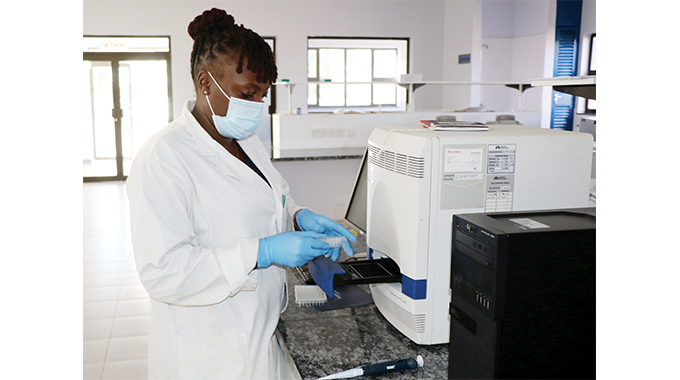Govt devolution funds bearing fruit

Patrick Chitumba, Midlands Bureau Chief
DEVOLUTION funds disbursed by the Government are bearing fruit in Chirumhanzu constituency in the Midlands Province where several boreholes have been drilled, clinics and schools built.
Chirumhanzu Rural District Council has used part of the $9,1 million it got from Government as devolution funds to ease access to education, improve health service delivery, provision of clean water and making areas reachable by rehabilitating roads.
Part of the devolution funds were used to drill 16 new boreholes to make sure communities had easy access to potable water.
Nyamatikiti Bridge along the Chaka-Charandura Road which connects communities in northern parts of the district to Charandura Growth point which houses the main GMB depot in the district and St Theresa Mission Hospital was also rehabilitated using devolution funds.
Government allocated the funds to be shared among the 10 provinces based on a number of factors such as poverty levels in all rural districts, quality of infrastructure and size of the population.
The development is expected to improve the livelihoods of communities in line with Vision 2030 of an upper middle-income society.
In an interview on the sidelines of the handover of an electrified US$14 000 fresh produce garden — Kupfumaishungu — to the 20 members making up the Kupfumaishungu group in Charandura by a local non-governmental organisation, Hand in Hand, in Chirumanzu on Tuesday, council chairperson Councillor Gladys Chivinge said the district has made tremendous progress in terms of improving service delivery.
She said after receiving the $9 million, council consulted the villagers on projects they wanted in their respective wards resulting in the drilling of 16 boreholes, construction of clinics, rehabilitation of roads and construction of bridges.
“The construction of Hwata clinic in ward six is 95 percent complete, we have done up to window level and we are on roofing. In ward 25, we are constructing Chapwanya clinic which is at 76 percent. In Ward 5 Chimbindi clinic is at 85 percent. Musena clinic in Ward 19 is 75 percent complete. The rehabilitation of Mudzengi clinic in Ward 16 is at 95 percent. We are roofing Chengwana clinic in Ward 4. After completing construction it will mean that health care services will be within reach of the villagers,” said Clr Chivinge.
She said under education, the RDC is constructing Faedea Primary School in Ward 11 and Hillview Primary School in Ward 22.
“These schools will also be within walking distance for the school children. We want to improve the level of education as we are adding these schools to complement the one, we already have. The good thing is we are working with our people. Just like when the Government decided to fund devolution funds, it wanted the people at the grassroots to be heavily involved with projects they can relate to, to spur development,” said Clr Chivinge.
She said they were looking at drilling eight more boreholes in some remaining wards so that every ward has more sources of water for the villagers and their livestock.
“We have drilled 16 boreholes in 16 wards. We are not yet done. We are going to the rest of the wards as we improve water supply for the villagers,” said Clr Chivinge.
Chirumhanzu’s deputy District Development Coordinator Ms Margret Mhlanga said Government’s Vision 2030 was attainable as evidenced by tangible life changing projects that are being undertaken by the Second Republic.
“We appreciate efforts by Hand in Hand to improve the livelihoods of the villagers. The project should be a life changer because the Second Republic is working on the National Development Strategy (NDS1) to improve the livelihoods of the people and such projects should come in handy,” she said.
Hand in Hand chief executive officer Mr Felix Tete said there is real money in the land if people utilise it well.
He said instead sitting while blaming authorities — people should till the land which many people have been benefiting from.
“As Hand in Hand we have put a perimeter fence, put 10 water taps, electrified this scheme and it’s up to you to make it work. The market is there and you need to work the land and change your livelihoods,” said Mr Tete.










Comments